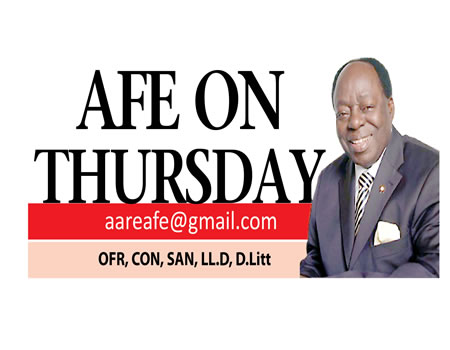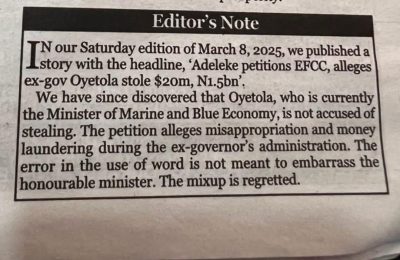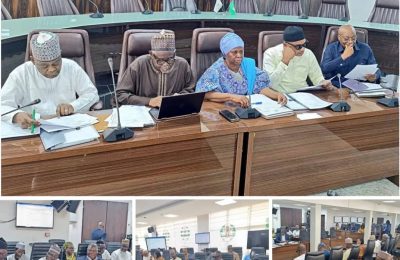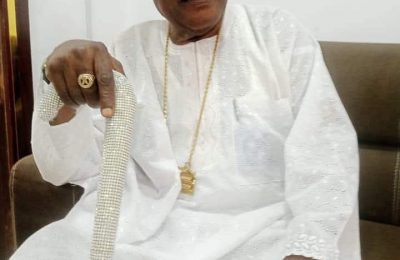
OF all the impeachments carried out, that of Chief Joshua ChibiDariye, the erstwhile Governor of Plateau State proved intractable and became the most discussed, perhaps as a result of certain peculiarities and features. Long before Alamieyeseigha of Bayelsa State was arrested and arraigned at a London Court, Joshua ChibiDariye had been investigated and interrogated by London Metropolitan Police. In fact, he had been arrested together with his girlfriend in a hotel with large sums of hard currency. He was only released on bail on condition that he reported back to the Police at regular intervals.
The Economic and Financial Crimes Commission (EFCC) had to come in with its own heaps of evidence of corruption backed by unassailable documents before the House could be persuaded. The House comprised of 24 members. Meanwhile 14 out of the original 24 legislators had decamped from Peoples Democratic Party (PDP) under which they got elected in the first place to Action Congress of Democrats (ACD). By the provision of Section 109 (1)(g), those 14 legislators ceased to be members of the House. It provides:- “109- (1) A member of a House of Assembly shall vacate his seat on the House if – (g) being a person whose election to the House of Assembly was sponsored by a political party, he becomes a member of another political party before the expiration of the period for which that House was elected;

Provided that his membership of the latter political party is not as a result of a division in the political party of which he was previously a member or of a merger of two or more political parties or factions by one of which he was previously sponsored or…..” In the absence of their glowing sufficient proof that their former political party (PDP) had been factionalised, they could not be regarded as bona fide members of Plateau State House of Assembly. What is more, the Independent National Electoral Commission (INEC) had given Notice that the 14 defectors were no longer members of the House. Thus their seats in the House were declared vacant.
By this singular development, Plateau State House of Assembly was left with only the credible members. Again out of the remaining ten, one became incapacitated as a result of ill health leaving only nine functional members. Clearly six out of nine effectively constituted two-thirds – as required by Section 188 of the constitution.
The argument of some people that six people could not have constituted two-thirds of the members of the House of Assembly as required by the constitution is therefore not tenable against the backdrop of the peculiarity of the situation in Plateau State. It would be utterly absurd and against the purport and intendment of the constitution to add non-functional members of the House to the functional ones for the sake of successfully effecting impeachment of a grossly corrupt governor.
The role of chief judges
The role of the Chief Judge in the removal of a governor, as spelt out by the constitution does not admit of any discretion at all. Here Section 188(5) of the constitution is apposite. It says: “188 – (5) Within seven days of the passing of a motion under the foregoing provisions of this section, the Chie Judge of the State shall at the request of the Speaker of the House of Assembly, appoint a Panel of seven persons who in his opinion are of unquestionable integrity, not being members of any public service, legislative house or political party, to investigate the allegation as provided in this section.”
I am not unaware of the general misconception about the role of the chief Judge in the impeachment saga. The clause “who in his opinion are of unquestionable integrity”, it is submitted, does not give the Chief Judge an unrestricted discretion to choose just anyone be he/she a relation of the erring governor, his friend or one of his contractors. No please. “In his opinion” is not same as “at his beck and call” or as he likes”.
Let me stress it here that the involvement of the Chief Judge in the impeachment proceedings is a new innovation under the 1999 Constitution. Under the 1999 Constitution, the responsibility of empanelling seven persons to investigate allegations of misconduct against the erring governor (or Deputy Governor) was vested in the Speaker of the House. For the avoidance of doubt let me reproduce the provisions of Section 170(5) of the 1999 Constitution on the issue:- “Section 170(5) – Within 7 days of the passing of a motion under the foregoing provisions, the Speaker of the House of Assembly shall cause the allegation to be investigated by a Committee of 7 persons who in his opinion are of high integrity, not being members of any public service, legislative House or political party, and who shall have been nominated and, with the approval of the House of Assembly, appointed by the Speaker of the House to conduct the investigation.”
From the provisions of Section 188(5) of the 1999 Constitution and 170(5) of the 1979 Constitution it would be observed that what the drafters/makers of the 1999 Constitution did was to relieve the Speaker of the House of Assembly of the burden of constituting a Panel etc only to place same on the shoulders of the Chief Judge. Perhaps the reason might not be unconnected with the need to prevent a sort of “tyranny of the Speaker” or excessive role and or overbearing influence in the removal of the executive.
It would be recalled that it was under this atmosphere that the erstwhile governor of old Kaduna State (before the exclusion of Katsina State) in 1980 was removed under the provisions of the 1979 constitution. The Speaker of the then Kaduna State House of Assembly played decisive roles in the impeachment of AlhajiBalarabe Musa. In a press interview granted by the erstwhile governor to a popular NATIONAL NEWSPAPER, Alhaji Balarabe Musa recounted how that provision was grossly abused as the Members of the old Kaduna State House of Assembly spearheaded by the erstwhile speaker made all manner of demands prior to the impeachment which demands he allegedly turned down. Back to the 1999 constitution and still on the role of the Chief Judge in the removal of governor, my position especially on the removal of the governor of Bayelsa, Ekiti, Plateau (and to some extend Anambra and Oyo) is that each case should be taken on the peculiar circumstances surrounding it. Clearly, the circumstances and situation prevailing in each of the aforementioned states differed considerably. And with due respect to some commentators on this issue, the crucial issue is not the number of legislators that signed the notice of “any allegation” or the faction of the legislators that supported the resolution to remove the governor rather the central issue should be “are the allegations leveled against the governor weighty enough as to constitute gross misconduct? Put in another form, is he guilty of gross misconduct? This is the more reason why I said earlier or that each case should be taken on its own merit. The Chief Judge, I insist, must perform his constitutional responsibility otherwise he stands the risk of descending into the arena.
To be continued…
AARE AFE BABALOLA, OFR, CON, SAN, LL.D (Lond.)
Read Allso: Onifiditi gets staff of office








